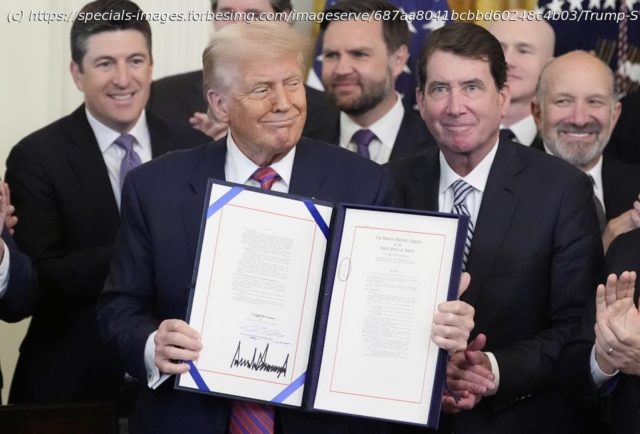Today, President Trump signed the GENIUS ACT into law. What should you expect now that it has and who will be involved.
The wait is over: the GENIUS Act is signed and sealed.
On the heels of bipartisan approval in both chambers of Congress, President Donald Trump has officially signed the Guiding and Establishing National Innovation for U.S. Stablecoins Act (GENIUS Act) into law, marking the first comprehensive federal legislation specifically tailored to dollar-backed stablecoins. With his signature, the United States transitions from regulatory ambiguity to legal infrastructure. For the first time, digital assets redeemable at par for U.S. dollars are not only recognized by federal statute: they are regulated, supervised, and conditioned on compliance.GENIUS Act: A Legal Framework with Teeth
As detailed in the legislation, the GENIUS Act sharply defines who can issue payment stablecoins and under what conditions. Issuers must fall into one of three categories: (1) subsidiaries of insured depository institutions, (2) federally chartered nonbanks approved by regulators, or (3) state-regulated entities from jurisdictions certified by the Treasury as meeting federal standards.
The law prohibits the commingling of customer funds, ensures bankruptcy priority for stablecoin holders, and demands asset-backed reserves comprised of cash equivalents like Treasuries and overnight repos.






